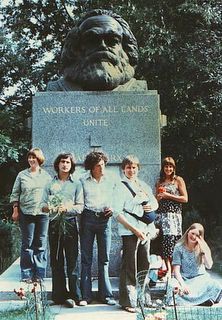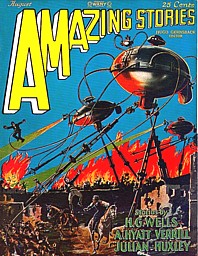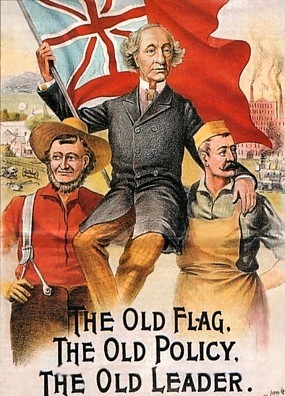R.U.R. or R.U.Rn't an android?

Illustration by C. Lee Healy from
Philip K. Dick and the Umbrella of Light
Japanese scientists have produced an "android". Repliee Q1 is a robot with the outward form of a woman, that flutters its eyelids and appears to breathe. In science fiction the word "android" typically used to refer to artificially created human-like beings composed of organic material, who might well be indistinguishable internally as well as externally from the real McCoy. A robot, by contrast, is a mechanical being. If constructed to resemble a human in outward form, it is a humanoid robot. In recent years, "android" has commonly been used to mean humanoid robot: hence the description of Repliee Q1 as an android. "Robot" entered the English language in the 1920s from the Czech (from robota, or forced labour) via Karel Čapek's play R.U.R. (Rossum's Universal Robots). Ironically, Čapek's robots were artificial organic beings, and thus androids--not robots in the usual meaning of the word.
In post-WW2 science fiction, the android was a standard metaphor for the racially oppressed human: the being who is unjustifiably discriminated against on the basis of origin. However, one writer, Philip K. Dick, used the android as a metaphor for the alienated, psychologically damaged human, who was unable to relate empathically to others. In Dick's fiction the android is the human who is becoming less autonomous and more machine-like in his or her behaviour, while the robot represents the potentiality for movement in the other direction: toward greater spontaneity and caring for others. Among the ways in which Dick, who died in 1982, has been honoured is by the creation of a robot in his image. The fact that the undertaking is called the Philip K. Dick Android Project shows that those involved don't understand Dick's writing.
René Descartes wrote:
…if I look out of the window and see men crossing the square, as I just happen to have done, I normally say that I see the men themselves.... Yet do I see any more than hats and coats which could conceal automatons? I judge that they are men. And so something which I thought I was seeing with my eyes is in fact grasped solely by the faculty of judgement which is in my mind.If Descartes were to see some of Repliee Q1's descendants crossing the square, I doubt he could so unerringly judge whether they were conscious beings or mere machines. (There were, after all, no life-like humanoid robots in the 17th century to test Descartes' powers of discernment.) But Descartes was half right: we do make judgements about the inner lives of the beings that we see only from the outside. Repliee Q1's designer, Professor Hiroshi Ishiguro, says, "we have found that people forget she is an android while interacting with her. Consciously, it is easy to see that she is an android, but unconsciously, we react to the android as if she were a woman." In the future we are likely unconsciously to grant personhood to a whole range of mechanical, non-sentient beings with whom we interact. By contrast, even now we exclude from personhood a whole range of sentient beings, whose inner lives we fail to recognize, and whom we wrongly judge to be automatons. Philip K. Dick's novel Do Androids Dream of Electric Sheep? (not to be confused with the movie version, Blade Runner) looks at humans, androids, robots, and animals, and asks who counts? It's something to sleep on.














